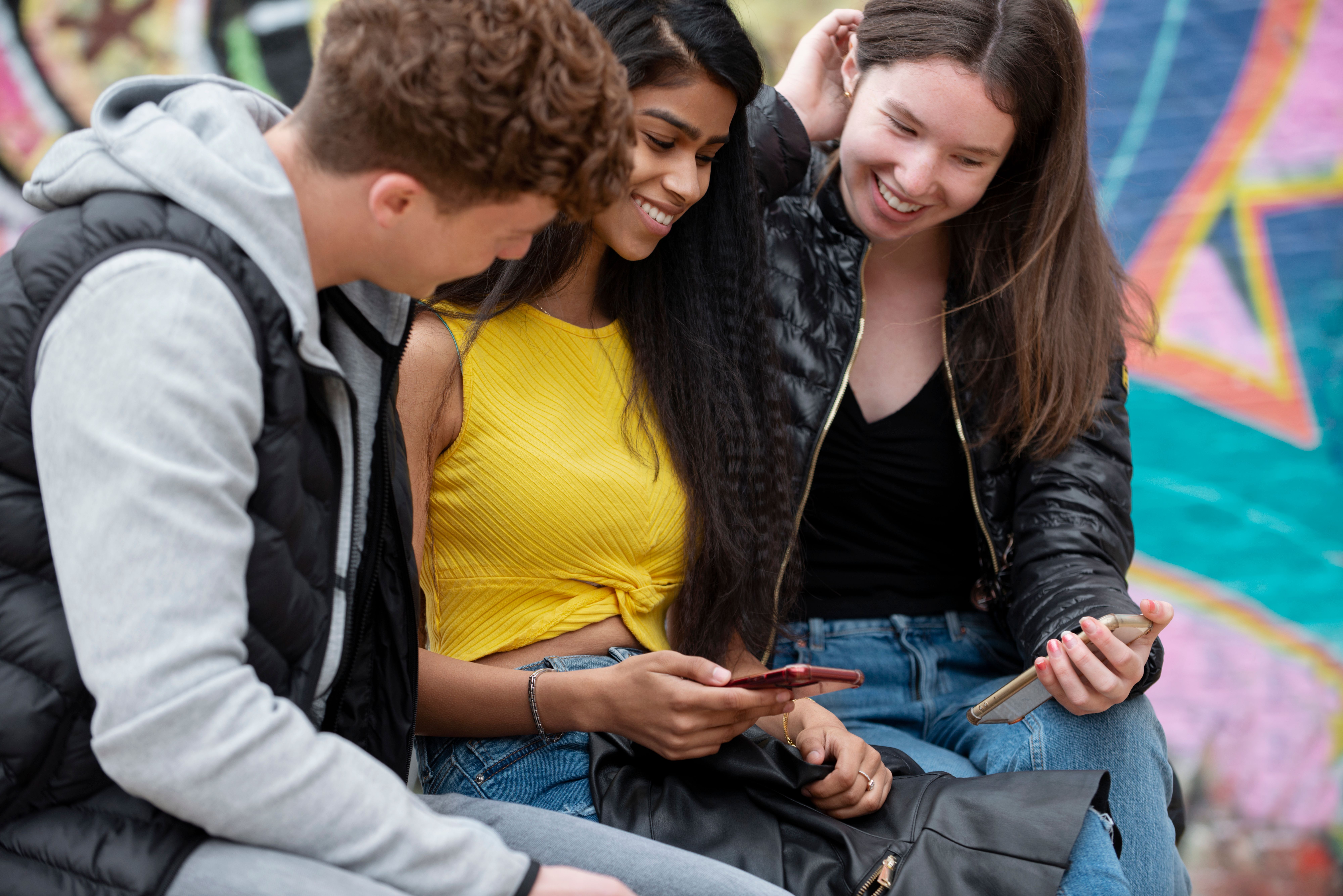Healthy Relationships
Healthy relationships should make you feel safe, respected, and valued. This page will help you understand what a healthy relationship looks like, recognise signs that something might be wrong, and offer guidance on building strong, positive connections. If you need help, remember that support is here whenever you're ready.
What makes a relationship safe?
There’s no set time to be in a relationship, but if you do feel ready start one, it’s important to think about how you feel. Relationships can bring out the best in us, make us feel happy and naturally make us want to spend more time with the other person. But sometimes it can be confusing and difficult to assess whether you’re in a healthy relationship, or to know when things aren’t quite right
Feeling emotionally and physically safe is an essential foundation for any intimate relationship. A safe relationship should be supportive and accepting, and you should be able to share your feelings without fear.
Sometimes, a relationship may start safe, but become increasingly unsafe, making it harder to identify when the relationship is no longer healthy. However, it is important that your relationship, be it with a romantic partner, your parents or friends, should enhance your life and elevate the happiness you already have.
If there is any point that you feel a relationship has become unsafe or unhealthy, you should reach out to someone immediately to get support.
A healthy relationship means feeling understood and respected, not judged or controlled. Learning what that looks like has helped me make better choices about who I let into my life.
What makes a relationship healthy?
There is no perfect formula for making a relationship healthy, but there are some key things you should consider:
- Mutual respect: It’s normal to not agree on everything, but you should always treat each other with respect.
- Compromise: We all have different opinions or views. Compromise is about being willing to give and take in order to come to a place of understanding.
- Honesty: It’s important to be open and truthful, not knowingly misinforming or misleading each other. This shouldn’t, however, be a license to be rude or hurtful.
- Trust: Trusting yourself and the other person includes feeling safe physically and emotionally and having the confidence to confide in and rely on them.
- Communication: Good communication is crucial: talking to each other, speaking honestly and openly, and respecting each other’s wishes.
- Individuality: One person shouldn’t be trying to control the other in a healthy relationship. You should be comfortable being yourself.
How can I create a healthy relationship?
Here are some ideas for both you and your partner to discuss and consciously act upon to prevent the relationship becoming unhealthy or unsafe:
- Take an interest in your partner’s passions and values: Try not to judge them if their beliefs don’t align your own, and take the time to see their perspective too.
- Try to keep communication as open as possible: Communication is key to forming the basis of respect, trust and honestly in a relationship. It’s important to maintain an open, non-offensive dialogue, true to yourself and each other.
- Be supportive of your partner: Offering reassurance and encouragement helps to nurture a sense of safety in the relationship.
- Respect each other’s privacy: Safe and healthy relationships require space; you don’t have to share and do everything with your partner. Taking the time to meet with friends separately and be independent fosters strength in the relationship.
Spotting the signs of an unsafe relationship
You Feel Afraid
You Feel Defensive
Imbalance of Power
Feeling the Pressure
Losing Interest
Feeling Questioned
Feeling Untrusted

Get support, speak to us
Talking to someone about my relationships helped me see what I deserve. Now I know that real support means respect and trust, and I don’t have to settle for less.
I think I might need some help... what do I do?
Being in an unsafe or unhealthy relationship will often leave people feeling helpless and isolated. You might think nobody could understand your experience and that you can’t ask anyone for help, but that isn’t true.
Find someone you can talk to so you can get the help you need. Never be afraid of getting help in these situations.
Get support
Speak to us
Speak to somebody that you trust
Speak to the police
What if I want to end the relationship?
If you do find you want to leave a relationship for any reason, don’t feel guilty. You should feel free to end the relationship if you want to. It can be hard to do, but having a plan can help. Think about what you want to say in advance and meet somewhere with others around for your own safety.
Don’t be hard on yourself – you can ask people you trust for advice and guidance, and spend time doing things you enjoy to distract yourself.
If you are trying to leave an unsafe relationship, consider the following:
- They probably won’t change, no matter how many times they say it.
- Never make excuses for your partner, and have the courage to walk away.
- Reach out to your support network; they can keep you grounded.
- Consider keeping a journal to help document any incidents.
- Reconnect with hobbies and activities that you enjoy to take your mind off it.